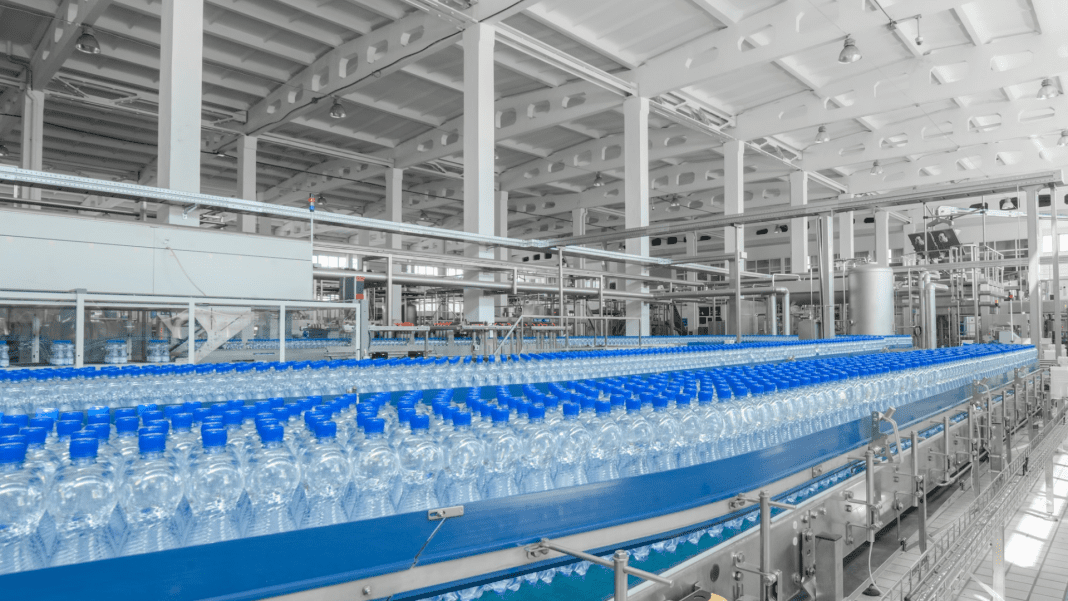Global Water-bottle sales are expected to reach over USD 300 billion by 2024. The water bottling industry is a source of refreshment, hydration, and convenience for millions of people around the world. It’s a dynamic and ever-evolving industry that has come a long way since the first bottled water was sold in the 1600s.
From simple glass bottles to sleek and innovative plastic containers, the industry has adapted to meet the demands of consumers. However, the industry has a significant impact on the environment and has faced criticism for several reasons.
The bottling industry, which produces and distributes bottled water, has come under scrutiny for its use of large quantities of water and the potential for wastage. While access to clean drinking water is a fundamental human right, the extraction and bottling of water for commercial sale raises several ethical and environmental concerns.
One of the main criticisms of the bottling industry is the amount of water it uses. The process of bottling water requires large amounts of water to be extracted, treated, and transported.
According to the Pacific Institute, it takes an average of 1.39 litres of water to produce one litre of bottled water. This means that for every litre of water bottled.
Nearly an additional litre is used in the production process. This water usage can put a strain on local water resources and may lead to water scarcity in areas where water is already scarce. Another concern with the bottling industry is the potential for waste. Once bottled, water is transported long distances to reach consumers.
A significant amount of energy is required to refrigerate and transport the water, and as a result, a significant amount of carbon emissions are generated. Furthermore, many bottles end up in landfills or as litter, and it can take hundreds of years for plastic bottles to decompose. Despite the criticisms, some companies within the bottling industry have taken steps to reduce their water usage and improve water efficiency.
For example, some companies have implemented water recycling programs, in which water used in the production process is collected and treated for reuse. Additionally, some companies have introduced more sustainable packaging options, such as reusable bottles or biodegradable plastics. However, it is important to note that the bottling industry as a whole has not fully succeeded in controlling wastage. There is still a long way to go to ensure that the industry is operating sustainably and responsibly.
One potential solution to the challenges faced by the bottling industry is to shift towards more sustainable practices. This could include using more efficient production methods, implementing recycling programs, and investing in more sustainable packaging options.
Additionally, companies within the industry could work closely with local communities and government organizations to ensure that the extraction and use of water are done sustainably and responsibly. Another solution could be to focus on tap water instead of bottled water, as tap water is widely available and regulated by the government to ensure safety and quality.
Encouraging people to drink tap water instead of bottled water could help to reduce the strain on local water resources and decrease the amount of plastic waste generated by the bottling industry. Another important aspect is to regulate the bottling industry. Governments can play a key role in regulating the industry by setting standards for water usage and waste management, as well as imposing penalties on companies that violate these standards. This could help to ensure that the industry is operating sustainably and responsibly. However, it is not only the industry’s responsibility.
As consumers, we have a role to play in reducing the impact of the bottling industry on the environment. We can do this by choosing to drink tap water instead of bottled water when possible, recycling our plastic bottles, and supporting companies that are implementing sustainable practices. We also can encourage companies to be more transparent and accountable and put pressure on governments to regulate the industry.
In summary, the bottling industry has come under scrutiny for its use of large quantities of water and the potential for wastage. While some companies have implemented measures to reduce their water usage and improve water efficiency, the industry as a whole has not fully succeeded in controlling wastage.
Solutions such as shifting towards more sustainable practices, focusing on tap water, transparency, regulation, and consumer responsibility can help to ensure that the industry is operating sustainably and responsibly, and that access to clean drinking water is guaranteed for all.




